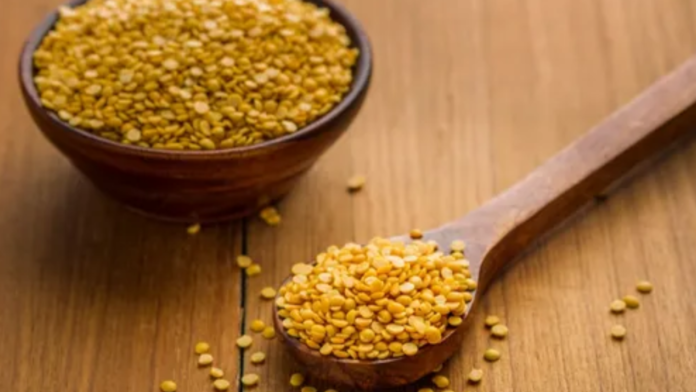The government expects a reduction of over 18 percent in the prices of tur, the country’s favored pulse, by February. This projection comes from a top official who attributes the decline to an improvement in availability and a decrease in demand. In November, the price stood at INR 160 per kg.
“We are confident of bringing the prices under INR 130 per kg by the first week of February,” consumer affairs secretary Rohit Kumar Singh.
Despite a year-long period of elevated tur prices caused by a domestic production shortfall, the government’s interventions are now yielding results. As of December 18, the price of tur has decreased to INR 154 per kg, down from INR 156.5 just one month ago.
“It has been about two weeks since we have started seeing green shoots in tur as prices of this commodity have come down for the first time in the past few months,” Singh said.
The decrease in prices is attributed to the arrival of kharif supplies in the market, heightened import levels, a seasonal decline in demand, and more relaxed import regulations.
“Pulse stocks have started arriving in the markets and are bringing down prices of all pulses, which is having a cumulative effect on tur as well,” Singh said.
Imports of pulses from Mozambique, Canada, Russia, and Australia are imminent, indicating a boost in availability. On December 8, the government took a step to enhance trade by exempting yellow peas (tur) from import duties until the conclusion of this financial year, eliminating minimum import prices and port restrictions.
The central government has initiated the direct procurement of tur dal from farmers at prevailing market prices. This strategic move aims to establish a buffer stock that can be released into the market during periods of price escalation. The funding for this procurement is sourced from the Price Stabilisation Fund.
“Additionally, there is always a 15-20 percent fall in demand for pulses in winters when the price-sensitive section of society opts for cheaper vegetables such as palak and methi instead of dal,” the secretary added.
Domestic tur consumption has surpassed the level of domestic production. The tur output for the country declined by 20 percent to 3.43 million tonnes in the 2022-23 crop year (July–June), compared to 4.29 million tonnes in the previous year. The annual tur consumption in the country stands at approximately 4.5 million tonnes.
According to the initial estimates provided by the agriculture ministry for the 2023-24 crop season, tur production is anticipated to be marginally lower, reaching 3.42 million tonnes.
As per government data, India imported around 778,000 tonnes of tur from Mozambique, Myanmar, and Tanzania in the calendar year 2023.
In anticipation of a decrease in tur and urad production caused by unpredictable weather conditions, the Centre extended the duty-free import policy for both commodities until March 31, 2024, in January. Subsequently, the Department of Consumer Affairs has been actively overseeing the stock levels of pulses, including tur and urad.
Furthermore, on June 2, the government permitted traders to maintain restricted inventories of tur and urad. In response to this measure, the government released tur from the national buffer stocks as a countermeasure to curb the escalation in prices.
The government introduced chana dal, packaged as ‘Bharat Dal,’ at subsidized rates of INR 60 per kg nationwide. The aim is to encourage consumption among those who may find arhar or tur dal, which are more expensive, less affordable.
In November, there was a significant surge in food prices, causing the Consumer Price Index-based inflation to reach 5.55 percent, marking a three-month high. Notably, pulse prices experienced a notable increase of 20.23 percent during this period.





